1. Budweiser
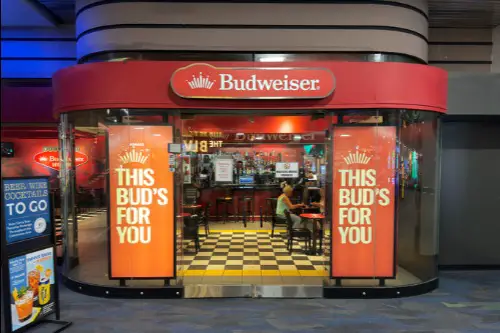
In 2016, Budweiser temporarily renamed its beer “America,” swapping out the iconic Budweiser logo for patriotic phrases like E Pluribus Unum and even parts of the Pledge of Allegiance. It was an audacious move meant to blend the brand with the national identity itself. The campaign dropped right before the U.S. presidential election, making it impossible to miss its political undertones. It wasn’t just about beer — it was about who gets to define “America.”
Budweiser’s stunt worked because it tapped into nostalgia, patriotism, and marketing all at once. It asked consumers to literally hold “America” in their hands, and many did. But it also blurred the line between national pride and corporate branding in a way that raised eyebrows. It’s one of the most literal and fascinating attempts at “rebranding” the country.
2. McDonald’s
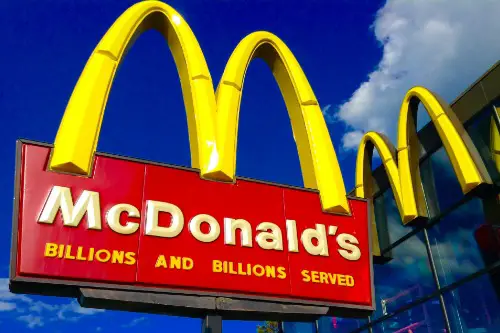
McDonald’s has long claimed a special place in American life — not just for its fries, but for its workforce. The company’s “1 in 8 Americans” campaign highlighted that one in eight people in the U.S. have worked for McDonald’s at some point. That statistic reframed the chain as a kind of national institution, almost a rite of passage. It positioned McDonald’s not as a fast-food brand, but as part of the American story.
The idea worked because it was relatable — nearly everyone knows someone who’s worn the Golden Arches uniform. McDonald’s became a symbol of opportunity, hustle, and the first job experience. It used that image to soften its corporate edges and connect with ordinary Americans. In doing so, it rebranded itself — and a little piece of America — as hardworking and hopeful.
3. Ford

Few companies embody American manufacturing pride like Ford. With its “Built Ford Tough” slogan and deep roots in Detroit, Ford has made “Made in America” feel like both a promise and a badge of honor. The company’s ads often celebrate workers, families, and wide-open highways. Ford doesn’t just sell trucks — it sells the American dream on four wheels.
This kind of branding runs deep because it reinforces a collective myth of resilience and self-reliance. Ford consistently positions itself as proof that American industry still matters. Every pickup truck commercial doubles as a love letter to the country’s blue-collar heart. In essence, Ford’s entire brand has been a decades-long project to remind Americans who they are.
4. Coca-Cola
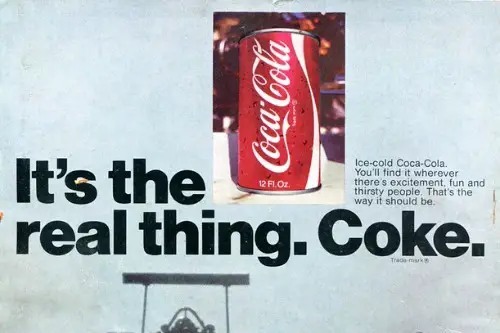
Coca-Cola has spent over a century defining what “America” looks and feels like. From its classic red-white-and-blue marketing to its famous “I’d Like to Buy the World a Coke” campaign, the brand turned refreshment into a cultural export. Coca-Cola isn’t just a soft drink — it’s shorthand for a certain kind of American optimism. Its imagery, tone, and music have long mirrored how America wants to see itself.
By doing so, Coke became an unofficial ambassador of the U.S. around the globe. It bottled an idea of America that’s sunny, open, and inclusive — at least on the surface. The product became a kind of cultural icon that transcends politics. In a way, Coca-Cola didn’t just rebrand America — it sold it.
5. Levi’s
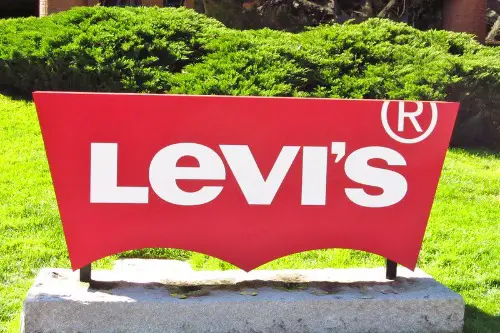
Levi’s jeans are as American as denim itself. The brand was born in the gold-rush era and evolved into a global symbol of rugged individuality. Over time, its marketing turned Levi’s into a wearable metaphor for freedom, rebellion, and authenticity. The jeans became a visual shorthand for the American spirit.
That’s what makes Levi’s a quiet but powerful participant in “rebranding” America. Its imagery of cowboys, workers, and wanderers created a cinematic version of the nation. Even as it sells worldwide, it holds onto that idea of American grit and adventure. Levi’s doesn’t just clothe America — it mythologizes it.
6. Jeep

Jeep is another brand built on pure Americana. Its roots in World War II gave it instant credibility as a symbol of ruggedness, mobility, and freedom. Today, Jeep’s ads still evoke wide-open spaces and the thrill of discovery. Owning a Jeep isn’t just about driving — it’s about living the “go anywhere, do anything” American dream.
That positioning has made Jeep one of the most patriotic brands year after year. It takes the frontier mentality and updates it for modern consumers. Every mud-splattered commercial is a love song to American adventure. In Jeep’s world, rebranding America means keeping its wild side alive.
7. Harley-Davidson
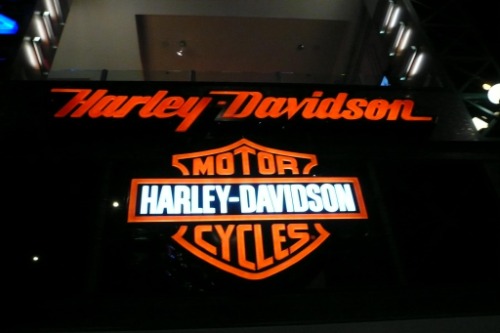
Harley-Davidson is more than a motorcycle company — it’s a lifestyle manifesto. The brand’s identity rests on rebellion, freedom, and the open road. Harley doesn’t just sell machines; it sells the feeling of being unbound, untamed, and utterly American. The roar of a Harley engine might as well be the soundtrack of independence.
That’s why it belongs on this list. Few brands have so successfully turned a product into a national symbol. Harley’s image is part cowboy, part outlaw, part patriot — and it all works. Its version of America is loud, proud, and always in motion.
8. Apple

Apple might be a global giant, but its brand is deeply rooted in American innovation. From the “Think Different” campaign to the mythos of Steve Jobs, Apple positioned the U.S. as the birthplace of creativity and disruption. Every keynote and product launch feels like a showcase of American ingenuity. The brand made “Designed in California” a modern pledge of excellence.
In doing so, Apple rebranded America as forward-thinking and visionary rather than industrial or nostalgic. It sold sleekness, simplicity, and imagination as national virtues. In the global market, Apple’s identity reinforces the idea of America as the world’s creative engine. It’s the digital-age version of “Made in the USA.”
9. Wrangler

Wrangler jeans might not get as much global buzz as Levi’s, but they’re pure Americana. Rooted in cowboy culture and the working class, Wrangler’s brand celebrates durability, honesty, and hard work. Its marketing leans into the heartland version of America — the one with rodeos, trucks, and tough love. It’s not flashy, but it’s faithful to a certain vision of the country.
By doubling down on authenticity, Wrangler helped preserve and promote traditional American imagery. It rebranded America as grounded and genuine in a time when other brands were chasing trends. That consistency makes it powerful. Wrangler doesn’t just sell jeans — it sells belonging.
10. Disney
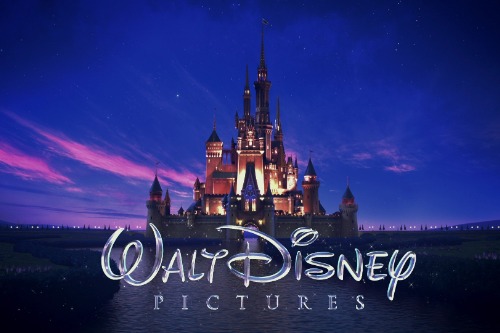
Disney may be a global powerhouse, but its roots are soaked in American optimism. Walt Disney himself built the company on ideals of imagination, family, and the pursuit of happiness. From Mickey Mouse to Main Street U.S.A., the brand paints a picture of the country as a place where dreams come true. In many ways, Disney’s version of America is the one the world learned to love.
Through its films, parks, and characters, Disney became a cultural ambassador. It projects an America that’s cheerful, creative, and inclusive — even if real life doesn’t always match. The company’s storytelling has shaped generations of global perceptions about what “American” means. In doing so, it’s rebranded the nation as a land of possibility.
11. Boy Scouts of America
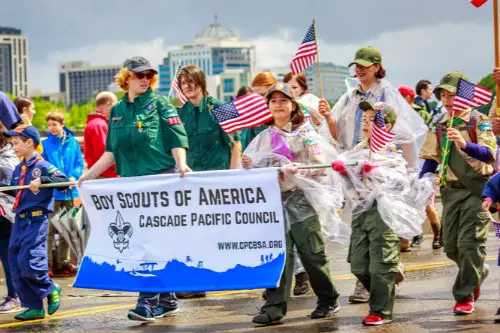
In 2025, the Boy Scouts of America announced it would rebrand as “Scouting America.” The move was meant to signal inclusion of girls and transgender youth while reaffirming the group’s national mission. It was a significant shift for an organization that’s been synonymous with traditional American values for over a century. This wasn’t just a name change — it was a redefinition of what “America” stands for in youth culture.
That makes it one of the clearest institutional examples of rebranding America in real time. The organization is literally rewriting its identity to match a more modern version of the country. Whether the move succeeds or not, it reflects how national branding evolves alongside culture. Sometimes, rebranding America starts from within.
12. Wieden+Kennedy
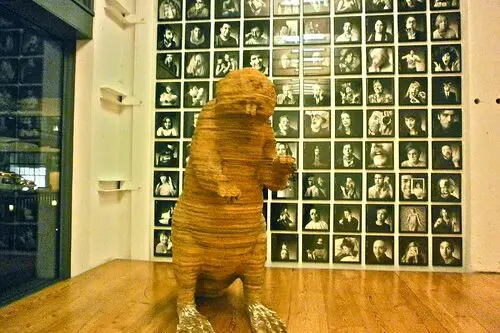
Advertising agency Wieden+Kennedy took the “rebrand America” idea literally in a creative concept called The Great American Rebrand. The project asked what it would mean to redesign the country’s image from the ground up. It was less about logos and slogans and more about values, language, and storytelling. In short, it imagined America as a brand in need of a new pitch.
It’s a fitting end to this list because it zooms out on the entire idea. While most brands borrow from American identity, Wieden+Kennedy explored how to reinvent it altogether. It’s the corporate world holding up a mirror and asking, “What does America look like now?” That’s the ultimate rebrand — and maybe the most honest one.
This post 12 Companies That Tried to “Rebrand America” was first published on American Charm.


